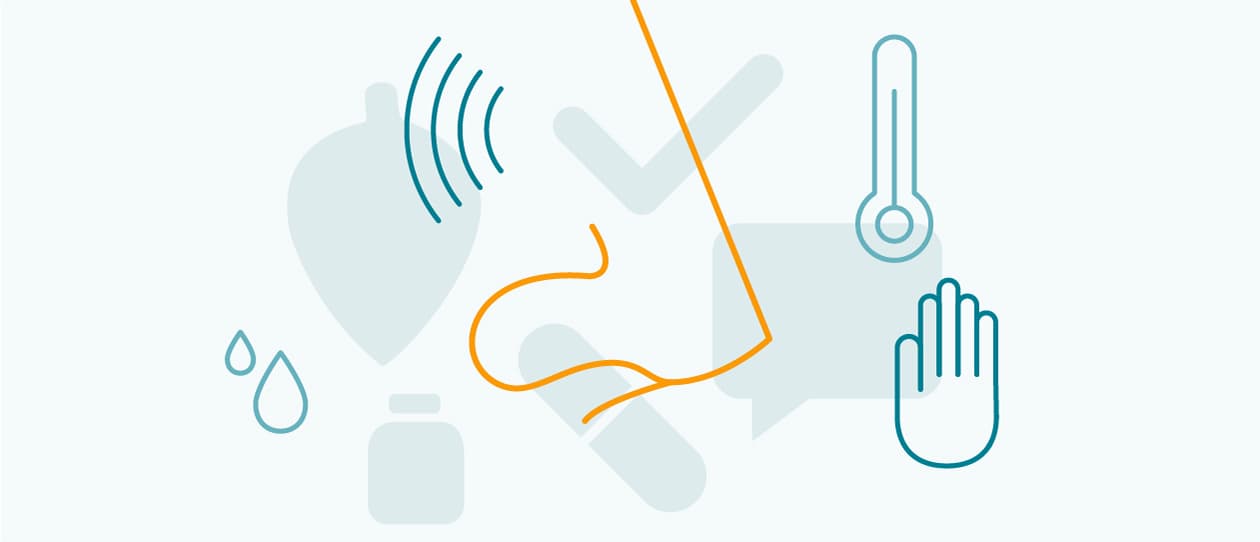
- Health hub/
- Tips & Advice on Cold, Flu & Boosting Immunity/
- Post-nasal drip


Mucous is a normal product of the nasal passages, and is generally excreted from the body by the action of blowing the nose. Post-nasal drip is often associated with a sore throat, runny nose or mild respiratory infection, and feels like liquid is flowing down the back of your throat.
The patient needs to cough the mucous up from the airways to excrete it, and this may cause the sensation of gagging.
It is commonly worse on waking in the morning as gravity causes the mucous to drain down into the throat and lower respiratory passages whilst you are lying asleep.
The most common cause of post-nasal drip is an upper respiratory infection such as a cold. In these cases, the post-nasal drip clears up when the infection is resolved.
Allergy is also a common cause of post-nasal drip, and should be suspected when the mucous is watery rather than thick and other symptoms such as itching eyes, nose and palate are present.
Make sure you drink lots of water, and consider using a humidifier in the bedroom to keep the mucous membranes in your nose, throat and eyes moisturised. This is especially important in winter when the humidity is lower.
Avoid mucous-forming foods such as dairy products, sugar and refined foods. Instead, eat a diet rich in fresh fruit and vegetables and whole grain products.
Don't eat a large meal just before bed as this can worsen the problem.
Airborne allergies such as animal hair, feathers and dust mites may trigger or aggravate post-nasal drip.Don't allow pets into your bedroom, and swap your feather doona for hypo-allergenic bedding such as cotton sheets and blankets.
Specialised cleaning may be required to remove dust mites.
Nasal sprays and other over-the-counter decongestant medications are not recommended for long-term use. See your healthcare professional if symptoms persist for longer than seven days.




